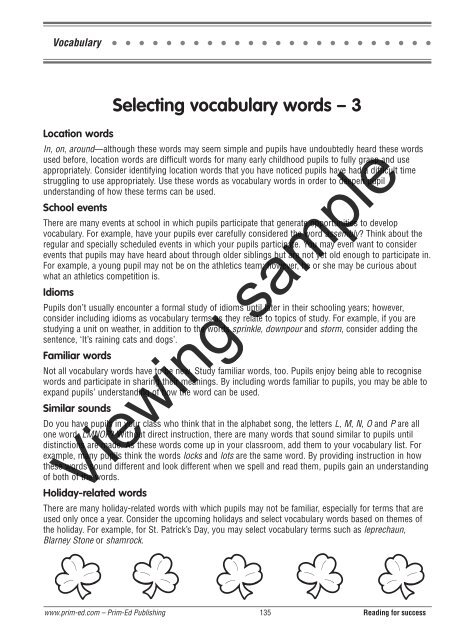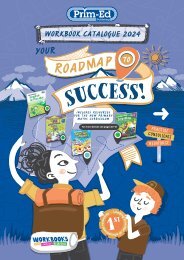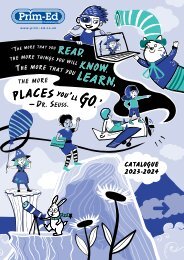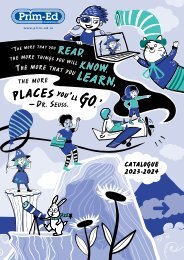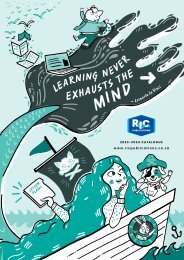PR-6216IRE Reading For Success - Book 1
Create successful ePaper yourself
Turn your PDF publications into a flip-book with our unique Google optimized e-Paper software.
Vocabulary<br />
Location words<br />
Selecting vocabulary words – 3<br />
In, on, around—although these words may seem simple and pupils have undoubtedly heard these words<br />
used before, location words are difficult words for many early childhood pupils to fully grasp and use<br />
appropriately. Consider identifying location words that you have noticed pupils have had a difficult time<br />
struggling to use appropriately. Use these words as vocabulary words in order to deepen pupil<br />
understanding of how these terms can be used.<br />
School events<br />
There are many events at school in which pupils participate that generate opportunities to develop<br />
vocabulary. <strong>For</strong> example, have your pupils ever carefully considered the word assembly? Think about the<br />
regular and specially scheduled events in which your pupils participate. You may even want to consider<br />
events that pupils may have heard about through older siblings but are not yet old enough to participate in.<br />
<strong>For</strong> example, a young pupil may not be on the athletics team; however, he or she may be curious about<br />
what an athletics competition is.<br />
Idioms<br />
Pupils don’t usually encounter a formal study of idioms until later in their schooling years; however,<br />
consider including idioms as vocabulary terms as they relate to topics of study. <strong>For</strong> example, if you are<br />
studying a unit on weather, in addition to the words sprinkle, downpour and storm, consider adding the<br />
sentence, ‘It’s raining cats and dogs’.<br />
Familiar words<br />
Not all vocabulary words have to be new. Study familiar words, too. Pupils enjoy being able to recognise<br />
words and participate in sharing their meanings. By including words familiar to pupils, you may be able to<br />
expand pupils’ understanding of how the word can be used.<br />
Similar sounds<br />
Do you have pupils in your class who think that in the alphabet song, the letters L, M, N, O and P are all<br />
one word, LMNOP? Without direct instruction, there are many words that sound similar to pupils until<br />
distinctions are made. As these words come up in your classroom, add them to your vocabulary list. <strong>For</strong><br />
example, many pupils think the words locks and lots are the same word. By providing instruction in how<br />
these words sound different and look different when we spell and read them, pupils gain an understanding<br />
of both of the words.<br />
Holiday-related words<br />
There are many holiday-related words with which pupils may not be familiar, especially for terms that are<br />
used only once a year. Consider the upcoming holidays and select vocabulary words based on themes of<br />
the holiday. <strong>For</strong> example, for St. Patrick’s Day, you may select vocabulary terms such as leprechaun,<br />
Blarney Stone or shamrock.<br />
Viewing sample<br />
www.prim-ed.com – Prim-Ed Publishing 135 <strong>Reading</strong> for success


